Food is information for the body. What we choose to eat and how it interacts with our internal biology has a profound effect on how we think and feel. Research on the “gut-brain axis” has continued to provide scientific backing to support the very intimate relationship between diet and mental health. Greater than 70% of the immune system resides in the gut and an estimated 90% of the feel-good neurotransmitter, serotonin, is produced in the gut! Food impacts the balance and diversity of your gut microbiome as well as the integrity of your GALT (Gut-Associated Lymphoid Tissue) which is necessary for proper food absorption and acts as a protective barrier to the interior of the body.
You are not what you eat, but what you absorb. Micro- ( i.e. vitamins and minerals) and macro-nutrients (i.e. protein and fat) in food, work in innumerable ways to influence the balance and function of our moods. To support healthy mental health it is essential that we look deeper into our food choices and intentionally seek foods that promote gut health and provide nutrient density.
We asked Registered Dietician, Olivia Wagner (MS, RDN, LDN, IFNCP) what some of the best Mood Boosting foods are and how she likes to incorporate them into her meals. Check out a few of the mood boosting foods below to add to your next grocery list!
Blueberries
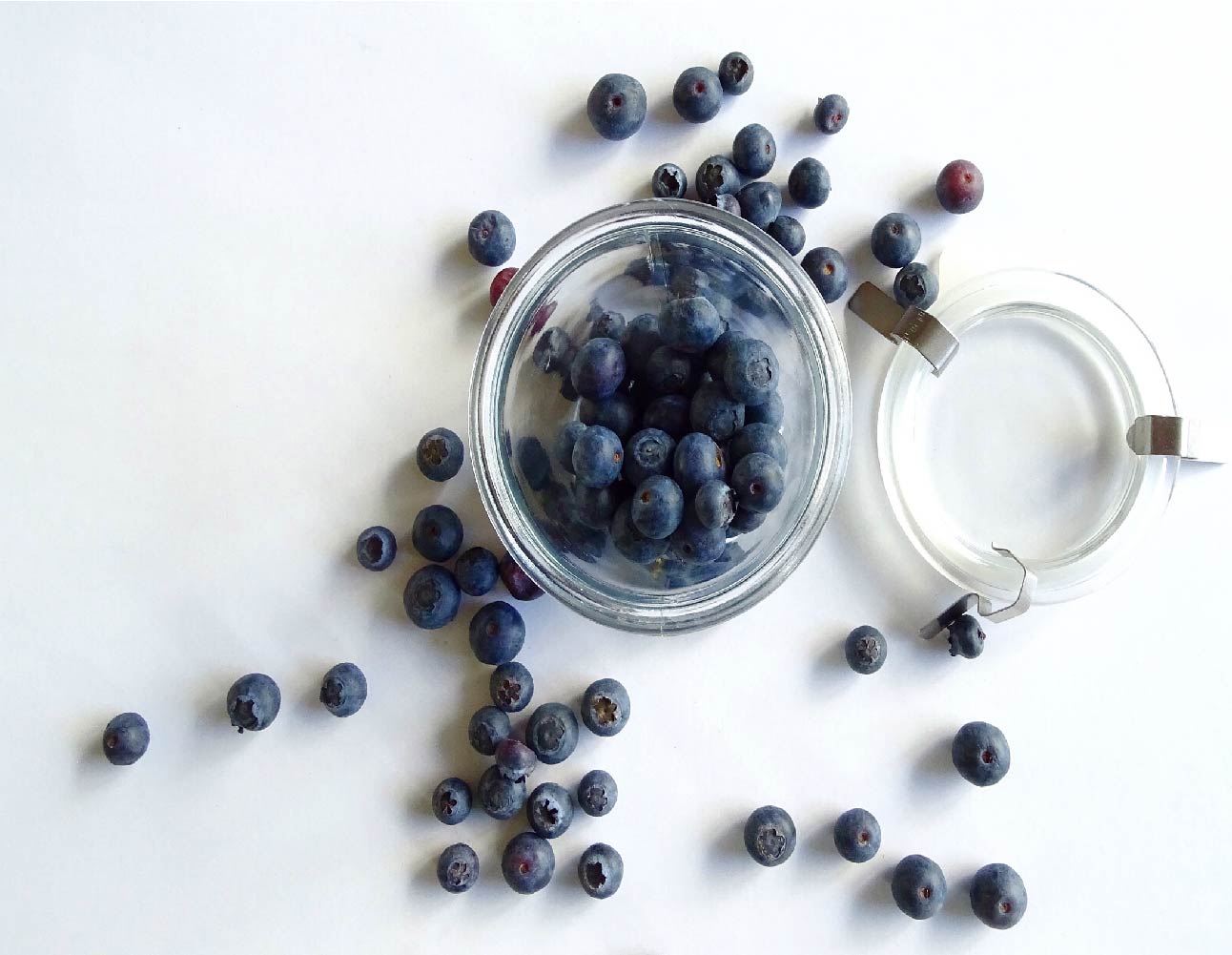.jpg.aspx?width=310&height=240)
Rich in the antioxidant-like compound flavonoids, blueberries help activate brain pathways associated with better cognition and less cellular aging. One study showed that diets rich in anthocyanins, the pigment that gives blueberries their purple-blue hue, participants had a 39% lower risk of depression symptoms. Wild blueberries have some of the highest flavonoid counts and are typically frozen at their peak ripeness to retain the maximum amount of antioxidants!
Activation: Top on Simple Mills Pancakes OR Change up your weekly salad with a sprinkle of fresh blueberries and a Wild Blueberry Dressing: Blend ¼ cup wild blueberries (thawed), ¼ cup EVOO, 1/8 cup balsamic vinegar, ¼ tsp sea salt and 1/8 tsp black pepper!
Beets
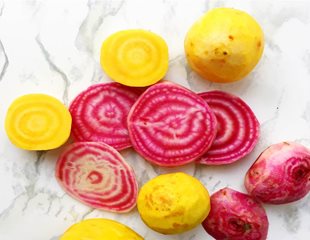
Beets are rich in nitrates that increase blood flow to the brain. They also contain vitamins B9 and folic acid important in cognitive functioning and Betaine that helps the body regulate mood, appetite, and sleep.
Activation: Slice thick cuts of roasted beets and use as a topper on avocado toast with Simple Mills Artisan Bread mix.
Avocados
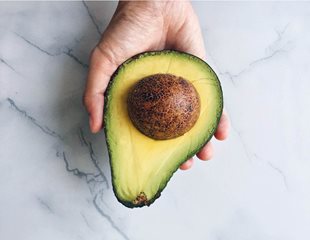
Avocados are good sources of folic acid, a nutrient that increases brain health and improves memory. They are also rich in potassium, magnesium, and monounsaturated fats. When included at a meal, they also help to keep blood sugar levels stable and support satiety. Blood sugar dysregulation can drive not only cravings, but also anxiety and irritability. Avocados are also rich in carotenoids (the same compound in carrots that provides their orange color!), which is associated with increased brain performance.
Activation: Try ½ avocado as a snack with 1 tbsp sauerkraut and a few Simple Mills Crackers, mashed in a “nourish bowl,” or blended into a morning smoothie to balance ½ cup of fruit!
Eggs
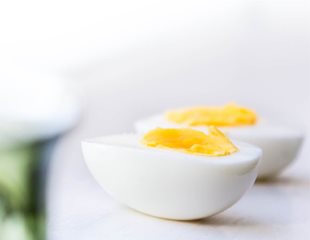
Protein packed eggs contain the building blocks for neurotransmitters. These amino acids can significantly boost tryptophan levels, the precursor to the feel-good neurotransmitter serotonin. Egg yolks, too, support mood by providing healthy doses of choline, a nutrient important in healthy cell wall function and additional antioxidants like biotin and essential fatty acids.
Activation: Prep hard-boiled eggs as an easy protein pumped snack or boost protein at any veggie focused meal or Simple Mills Pizza Crust by popping a sunny side up egg on top!
Pumpkin Seeds
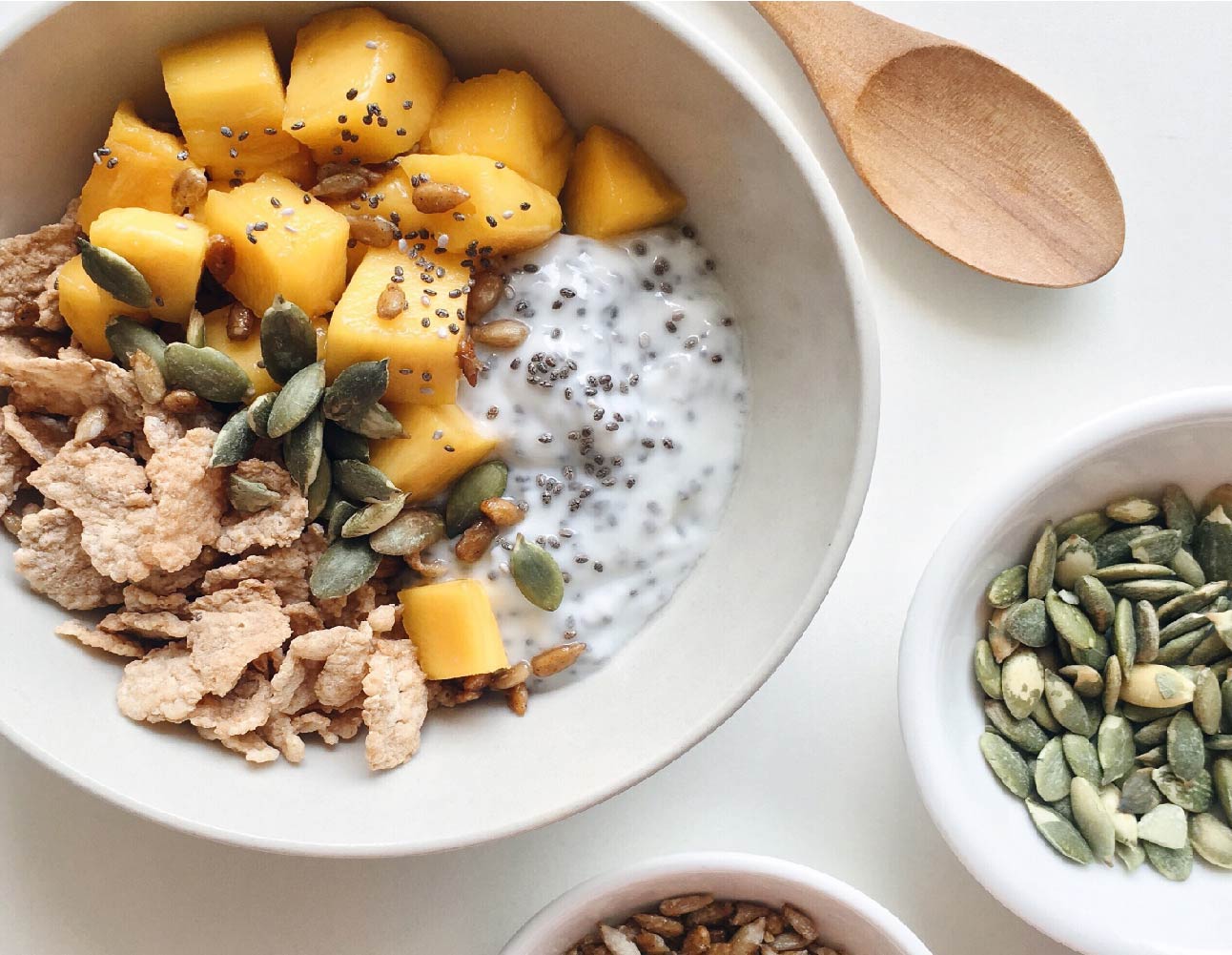
Pumpkin seeds are one of the best plant-based sources of zinc and are rich in protein at 10-12 g per ¼ cup! Research shows that moods as well as cognitive function improved when found zinc deficiencies were resolved. Pumpkin seeds are also rich in magnesium, potassium and calcium, minerals that are important for overall brain function.
Activation: Snack on ¼ cup of seeds mid-day, add crunch to a morning bowl or mid-day salad, or swap for pine nuts in your favorite pesto recipe!
Cacao and Cacao Nibs
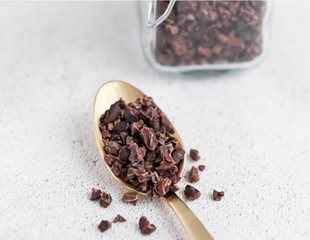
Cacao is rich in antioxidants like polyphenols and flavonoids as well as the calming vitamin magnesium. Cacao and cacao nibs have prebiotic qualities found to promote beneficial bacteria strains like Lactobacillus fermentum and lactobacillus plantarum. A happy gut = happy mood!
Activation: Blend 1 tsp cacao nibs into a smoothie for a “chip” like crunch, mix raw cacao powder with coconut oil and honey for a homemade “magic shell” to use on coconut ice cream or chilled fruit, or sprinkle on top of frosted Simple Mills Cupcakes!
Fermented Foods
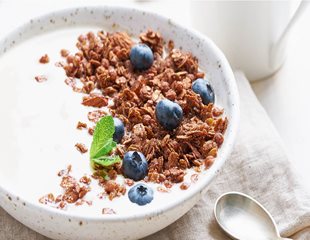
Fermented foods like sauerkraut, yogurt, kefir, kvass, miso, and kimchee support the bacterial conversation in our microbiome promoting bacterial diversity and beneficial flora. P.S. Increased bacterial diversity is associated with decreased incidence of depression and anxiety.
Activation: Try a dollop of Kimchee along with your favorite stir fry, coconut yogurt with blueberries and walnuts as a snack, or add 1 -2 tbsp sauerkraut brine into your favorite salad dressing.
Sardines
Sardines like salmon are packed with anti-inflammatory omega-3 fats, great for overall brain health and cognition. The little fish are also a good source of B12, a nutrient involved in the synthesis of dopamine and serotonin. Vitamin B12 deficiency is associated with impaired cognition and depression. A serving of sardines also provides about 87% the daily requirement for the antioxidant selenium. One study shows that selenium deficiency was associated with 3x greater risk of major depressive disorder.
Activation: Dress up sardines with a Mediterranean flair (capers, herbs, lemon and garlic), pop over your favorite slaw or salad, and eat with Simple Mills Sprouted Seed crackers as crunchy scooper!
Walnuts

The brain looking nut is packed with nutrition to support just that! Not only are walnuts a great boost of fiber, protein, and healthy fats (ALA omega- 3 fats), but they also contain neuroprotective compounds like vitamin E, folic acid, melatonin, and several antioxidative polyphenols. Research shows that walnut eaters had slightly lower depression scores than those who ate other types of nuts.
Activation: Blend with jarred red bell peppers, olive oil, garlic, and paprika for an easy Muhammara to pair with fresh veggies and Simple Mills Sea Salt Almond Flour Crackers.
Lentils
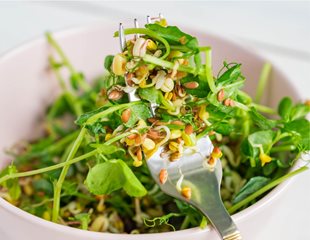
Lentils are rich in folic acid and b-vitamins, important in managing the stress response. Rich in fiber, lentils also help keep blood sugar stable when included with a healthy fat at meal times.
Activation: Try a make ahead marinated lentil salad with a rice wine vinaigrette, sun-dried tomatoes, fresh mint, and chopped local produce!